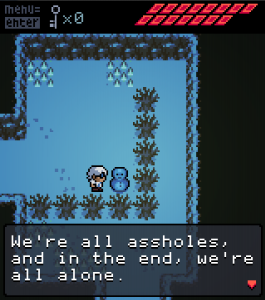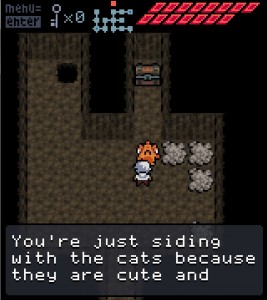This is bizarre and cringe-worthy, but it makes you think. How many scientists out there are like Dr. Patricia Churchland?
Tag: consciousness
REVIEW: THE SELF ILLUSION: WHY THERE IS NO ‘YOU’ INSIDE YOUR HEAD
 The Self Illusion: Why There is No ‘You’ Inside Your Head by Bruce M. Hood
The Self Illusion: Why There is No ‘You’ Inside Your Head by Bruce M. Hood
My rating: 3 of 5 stars
Found out about this book from the You Are Not So Smart podcast and read it on my Kindle.
It reeked of a mechanistic, sterile, matter-of-fact “you are your brain” worldview which I must admit I’m tired of and find boring, but I should have expected as much since You Are Not So Smart comes from pretty much the same mental place.
I don’t find fault with the idea that we don’t have an integral self; obviously, just like Bruce Hood thoroughly and with rich supporting bibliography demonstrates in this book, we’re largely shaped and influenced by our surroundings, our society and our biological limitations, first and foremost those of our brain. But that doesn’t mean that the notion of self is an illusion; rather, it means that the self is not a constant and that it is mutable. In fact, in which case would the self not be an illusion? When would we be in a position to say that the self is a real, concrete, quantifiable thing?
It seems to me that Mr. Hood’s proposition could have just as easily been called “The Soul Illusion”, for his assumption of what a self looks like–or should feel like–closely corresponds to our, for better or worse, highly intuitive notion of what a soul is: an immaterial cohesive agent between all of our experiences, thoughts and actions that creates a feeling of identity. In other words, the definition of the “me” in “I am me”. But is that what the self is, what it should be or all it can be? Is it possible to define what our selves are differently? In “I am me”, who would be the “I”? Who is the consciousness, like Eckhart Tolle would comment with his ultra-calm voice? Who is it–what is it–that reads this book and goes “huh, so I’m an illusion”? You might argue that the sense of self and consciousness are two separate things in order to question my qualms with the central point of the book; “precisely!”, I’d exclaim then, happy that you could intuitively grasp my point.
All that said, I’m giving The Self Illusion three stars instead of two because I must admit that it is well-researched, well-written and has plenty of interesting case studies of various psychological and psychiatrical disorders, “nature vs nurture”, sociological phenomena etc that do a good job of proving that the concept of self, or at least what Mr. Hood understands it to be, is an illusion insofar as it’s highly unpredictable and dependent on environmental and social factors. I particularly enjoyed reading about babies and how their brains develop and about conditions such as Tourette’s and how miming, laughing and facial expressions work in socialising and the development thereof. All this is interesting and rich from a clinical perspective, so it’s worth reading if you’re out to come closer to understanding how the human brain works–a task I personally believe to be impossible anyway. But if you’re not convinced that the brain is responsible for every little thing a person does, thinks, or thinks of doing, in view of the evidence that, contrary to what Mr. Hood quite often and emphatically repeats in the book, does exist, this book will provide little insight.
Anodyne Review

Take Link To The Past, a David Lynch film (or any other work based on a stream-of-consciousness or dreamscape narrative) and some Nietzsche. Put them in a blender. Blend. Serve with Indie™ sprinkles. You’ve got Anodyne.
What I enjoyed:
• compact dungeons;
• card collectables;
• funny;
• well-written;
• creative use of the graphical limitations.
What I didn’t enjoy:
• the map was more Zelda ’86 and less Link to the Past;
• floaty controls (don’t use analogue sticks, trust me);
• difficult in an awkward way, ie I was falling too much into pits and not being killed by enemies enough – also had to do with the very short invincibility window after being hit.
What I will remember:
• the ultimate broom which could be used as a weapon as well as a means to push dust on water to create a raft with;
• the Master Sword Get! moment after completing the first three dungeons (it has to do with a wind power generator);
• the philosopher bosses who always had something deep to say before and after the battle;
• the ending (which I had to fight for twice because I comically drowned after defeating the final boss the first time around);
• the humour – something we don’t see in games that often unfortunately.

I would recommend it to everyone who:
• likes Zelda, especially the 2D ones;
• enjoys short games (it won’t take you more than 5 hours);
• is bored of dry dialogue (no text is wasted in Anodyne, there are no “Isn’t it a beautiful day?” or “This is the way to the lake!” moments);
• feels comfortable with philosophy and/or poetry – the game makes little sense in terms of what we’d normally expect from the genre; it takes a mind that can grasp abstract ideas to follow what might be happening or derive enjoyment from the calm realisation that maybe what is happening doesn’t matter as much as how it’s happening;
• likes it indie (just two people worked for this. I hope, if you’re that dedicated of an indie person, that you’ll overlook the fact that the game’s main outlet has been Steam. I personally got it from some Humble Bundle and would happily share a DRM-free .exe with you if you’d like me to, but I’m sure you’d rather have the achievements, wouldn’t you?)
Review: The Power of Now: A Guide to Spiritual Enlightenment

The Power of Now: A Guide to Spiritual Enlightenment by Eckhart Tolle
My rating: 4 of 5 stars
I… um… “enjoyed” The Power of Now in audiobook form — difficult choice of words here because “read” would be a lie and “listened to” would make it Power of Now sound like a song. I guess audiobooks need their own transitive verb now. Anyway.
Audiobooks have their strengths and weaknesses, obviously. I had the pleasure to enjoy the Power of Now as I was exploring a part of my city that had long been invitingly mysterious and still. The setting reinforced the listening and vice versa. The experience would have certainly been very different had I visually read the book in that jungle of reed. Those hours of exploration are now inseperably interwoven with the listening in my mind. I touched the Power of Now as described in the book while I was there; my attention was not in the past, nor in the future, it was squarely focused on my ears and eyes. I didn’t finish it during that exploration, however, and most of my subsequent listenings were rife with inattention. I thus have problems now remembering which parts I do not have any recollection of; I have no page to turn to. When you’re visually reading a book, the lack of memory is connected with an image related to the book — perhaps a page number or even the visual arrangement of the page, the shape of all the letters in tandem jumping out to create a subconscious bookmark. When aurally reading a book, this image is connected with the surroundings, especially if one listens to the book when using mass transit and all kinds of faces and other people are there to capture the attention and fantasy in ways reeds cannot.
Enough with describing the medium. The book in itself is very good. I did not find Tolle awfully didactic and the Q&As through which he chose to convey his teachings were satisfactory catalysts for bringing out what he wanted to say. Neither was I annoyed with his “recycling” of old teachings; essentially, that’s what religions have been doing anyway, repackaging old wisdom in different flavours. His message is more important and relevant now than it ever was, what with our lifestyle crisis and general existential confusion: 1) There is no past or future, only present. Giving in to dominance of the mind filters out true consciousness and presence (as in being in the moment wherever and whenever one is, not in the past and future) 2) People’s minds are imposters pretending to be their true selves and worrying about all sorts of things when there is no real reason for it.
What I found slighlty annoying was his insistence on quoting Jesus. Then again, my being annoyed with Jesus is only part of being disgusted by the church and naturally connecting hiw with it. That is however, as I understand it, a logical fallacy (I would like to mention at this point that discrediting the book because Oprah popularised it is comitting the very same fallacy). To do Tolle justice he does say that he’s not in that way supporting Christianity over other religions (he often quotes Buddha as well as other enlightened figures of the past), he’s merely putting Jesus’ words ouf ot the context of that religion and into the context of the shared meaning behind all religions, of course with added stress to Eastern philosophies which emphasise more strongly on those aspects than the –generally moralistic– monotheistic ones.
Now that I’m trying to sum up the actual contents of this book I’m finding it hard to describe, even though I think I did get the gist of it. If I knew how to accurately and meaningfully reproduce it I wouldn’t have felt the need to read it. I guess “true wisdom cannot be shared through words; it lies within and waits for the right wake up call”. Yep, it’s one of those…
